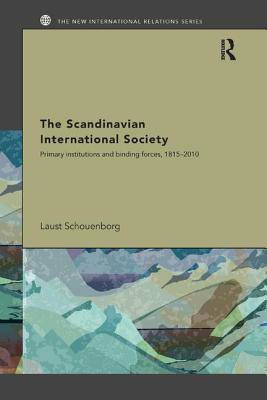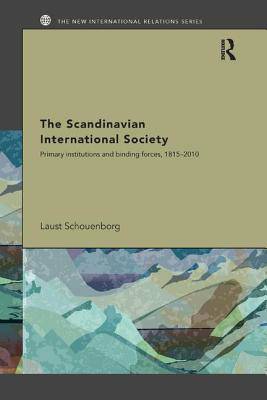
- Afhalen na 1 uur in een winkel met voorraad
- Gratis thuislevering in België vanaf € 30
- Ruim aanbod met 7 miljoen producten
- Afhalen na 1 uur in een winkel met voorraad
- Gratis thuislevering in België vanaf € 30
- Ruim aanbod met 7 miljoen producten
The Scandinavian International Society
Primary Institutions and Binding Forces, 1815-2010
Laust SchouenborgOmschrijving
This book provides a comprehensive analysis of Scandinavia as a regional international society, including the Nordic Peace and the rise of the Scandinavian welfare state.
Schouenborg aims to take the next big step in the theoretical development of the English School of International Relations - particularly the structural version introduced by Barry Buzan. He analyses the formation of a Scandinavian regional international society over a 200-year period and develops the concepts of 'primary institutions' and 'binding forces' as an analytical framework. In doing so, he not only offers one of the first systematic applications of English School structural theory, but also sheds a new comparative light on the distinctiveness of Scandinavian international relations, and provides a novel intervention in the debates about the emergence of the so-called Nordic Peace. In the first part of the book Schouenborg explains the core concepts and discusses how one may distinguish a regional international society from the broader global international society in which it is embedded. In the second part he provides an in-depth study of the Scandinavian case, focussing on the periods 1815 to 1919; 1919 to 1989; and 1989 to 2010.
The Scandinavian International Society will be of interest to students and scholars of international relations theory, Scandinavian international relations and history, and researchers engaged in comparative welfare state studies.
Specificaties
Betrokkenen
- Auteur(s):
- Uitgeverij:
Inhoud
- Aantal bladzijden:
- 240
- Taal:
- Engels
- Reeks:
Eigenschappen
- Productcode (EAN):
- 9781138109780
- Verschijningsdatum:
- 16/06/2017
- Uitvoering:
- Paperback
- Formaat:
- Trade paperback (VS)
- Afmetingen:
- 156 mm x 233 mm
- Gewicht:
- 452 g

Alleen bij Standaard Boekhandel
Beoordelingen
We publiceren alleen reviews die voldoen aan de voorwaarden voor reviews. Bekijk onze voorwaarden voor reviews.











